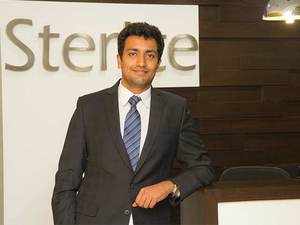 Agencies
AgenciesIt's all about taking the time and effort to do things right, he says. “There are enough examples of someone being hired because they [companies] are short on time. But the time and energy lost in correcting the wrong person or bringing him up to speed is just not worth it,“ he says. “So, spend the time to find the right resources and check their references rather than rushing into it.“
Agarwal also believes it's important to be clear about the company's objective for the next 3-5 years and put it down on paper.Chalking out job descriptions is another thing that's worth investing time in, he says.
Lessons from investing
In most corporate jobs, the one thing that matters is the years of experience. But it may not be advantageous in a dynamic techecology, Agarwal admits. In his early days as an investor, Agarwal had invested in a company where the team had 15 years of experience. The idea was to help them with marketing and branding, while they handled the tech aspect.
 Agencies
Agencies“I always thought the collective years of experience would be very useful in building up the technology stack. But that isn't the case in tech. You want youngsters who understand the late st programming languages and user interfaces, and how the latest technologies are being built. Also, they are more open and flexible in terms of building,“ he says.
What's hot doesn't always sell
Another important lesson he has learnt is not to get swayed by buzzing sectors.
“In the initial stages, I invested in a couple of companies as the sector sounded interesting. Now, I am more disciplined and spend more time with the core team seeing that they are capable regardless of what sector they are in.
 Agencies
AgenciesSomething may sound hot initially, but the team may not be able to execute. It's more important to find a great team because it can deliver,“ he says.
Are there any lessons from the startups that he would like to implement in his core business?
“Agility,“ Agarwal says. “We need to figure out how to have an agile management and communicate with each other fast because business and technology are growing quickly. You can't have a strategy or technology stack from six months ago and still try to implement it,“ he says.











 Get Unlimited Access to The Economic Times
Get Unlimited Access to The Economic Times
